
Mgdox Oral Drop
Manufacturer
MRG Pharmaceuticals
Salt Composition
Cefpodoxime Proxetil (25mg)
Key Information
Short Description
Mgdox Oral Drop is an antibiotic medicine used to treat a wide range of bacterial infections in children, including ear, eye, nose, throat, lung, skin, gastrointestinal tract, and urinary tract infections, as well as typhoid fever.
Dosage Form
Oral Suspension
Introduction
Mgdox Oral Drop is an antibiotic medicine used to treat a wide range of bacterial infections in children. It is commonly given to children for the treatment of a wide range of bacterial infections targeting the ears, eyes, nose, throat, lungs, skin, gastrointestinal tract, and urinary tract. It is also effective in treating typhoid fever in children and adolescents. Give this medicine to your child an hour before or two hours after meals. If your child develops a stomach upset, prefer giving it with food. Make sure to stick to the prescribed dose because it is given keeping in mind the type of infection, its severity, and the age and bodyweight of your child.
Directions for Use
Take this medicine in the dose and duration as advised by your doctor. Check the label for directions before use. Measure it with a measuring cup and take it by mouth. Shake well before use. Mgdox Oral Drop is to be taken with food.
Safety Information
Side Effects
Vomiting Diarrhea Nausea Rash Headache
Alcohol Warning
Consuming alcohol with Mgdox Oral Drop does not cause any harmful side effects.
Breastfeeding Warning
Mgdox Oral Drop is safe to use during breastfeeding. Human studies suggest that the drug does not pass into the breastmilk in a significant amount and is not harmful to the baby. Avoid prolonged use of Mgdox Oral Drop, since it may have possible effects such as rash and diarrhea.
Pregnancy Warning
Mgdox Oral Drop is generally considered safe to use during pregnancy. Animal studies have shown low or no adverse effects to the developing baby; however, there are limited human studies.
Interacting Medicines
Magaldrate Sodium Bicarbonate
How it works
Mgdox Oral Drop is an antibiotic. It works by preventing the formation of the bacterial protective covering (cell wall) which is essential for the survival of the bacteria. By doing so, this medicine stops the infection-causing bacteria from growing further and prevents the infection from spreading without making the bacteria resistant to further treatment.
Quick Tips
Your child must complete the entire course of antibiotics. Stopping too soon may cause the bacteria to multiply again or cause another infection. Give this medicine with food to avoid an upset stomach. Encourage your child to drink plenty of water in case diarrhea develops as a side effect. Conditions like common cold and flu are caused by viruses. Never use this medicine for such conditions. Only give Mgdox Oral Drop to your child for their current infection. Never save medicine for future illnesses. Stop this medicine and immediately report to your child’s doctor in case your child develops an itchy rash, facial swelling, or breathing difficulties while taking this medicine.
Related Medicines

Cefdeck 25mg Oral Suspension

Vanpox Oral Drop

Podil Oral Drop
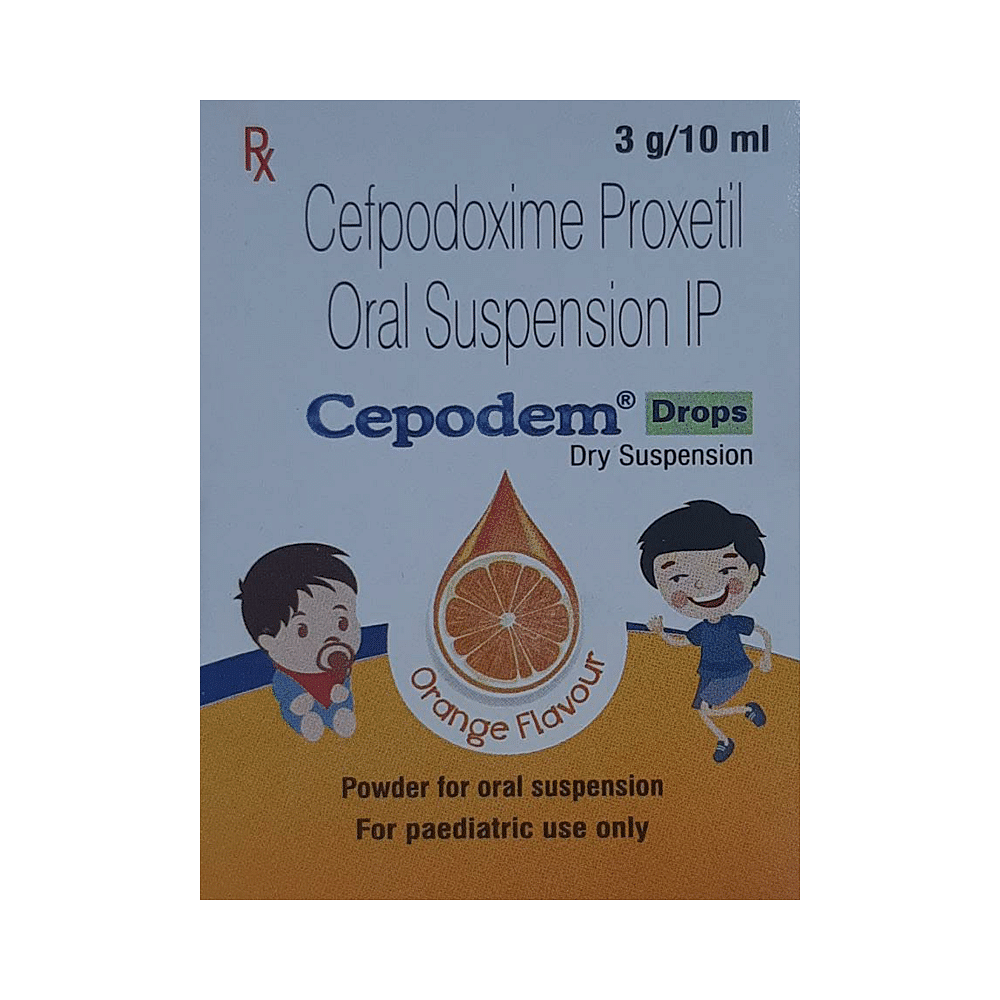
Cepodem Drops Dry Suspension Orange
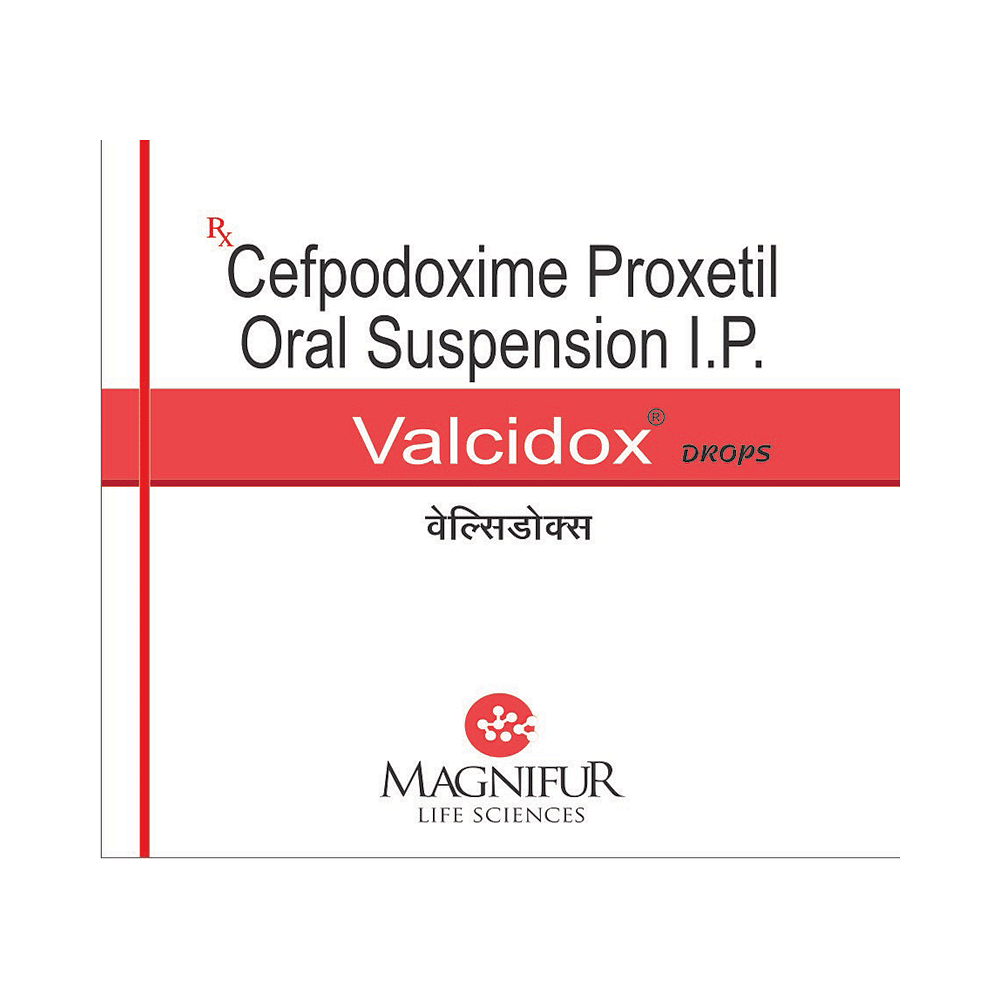
Valcidox Drops
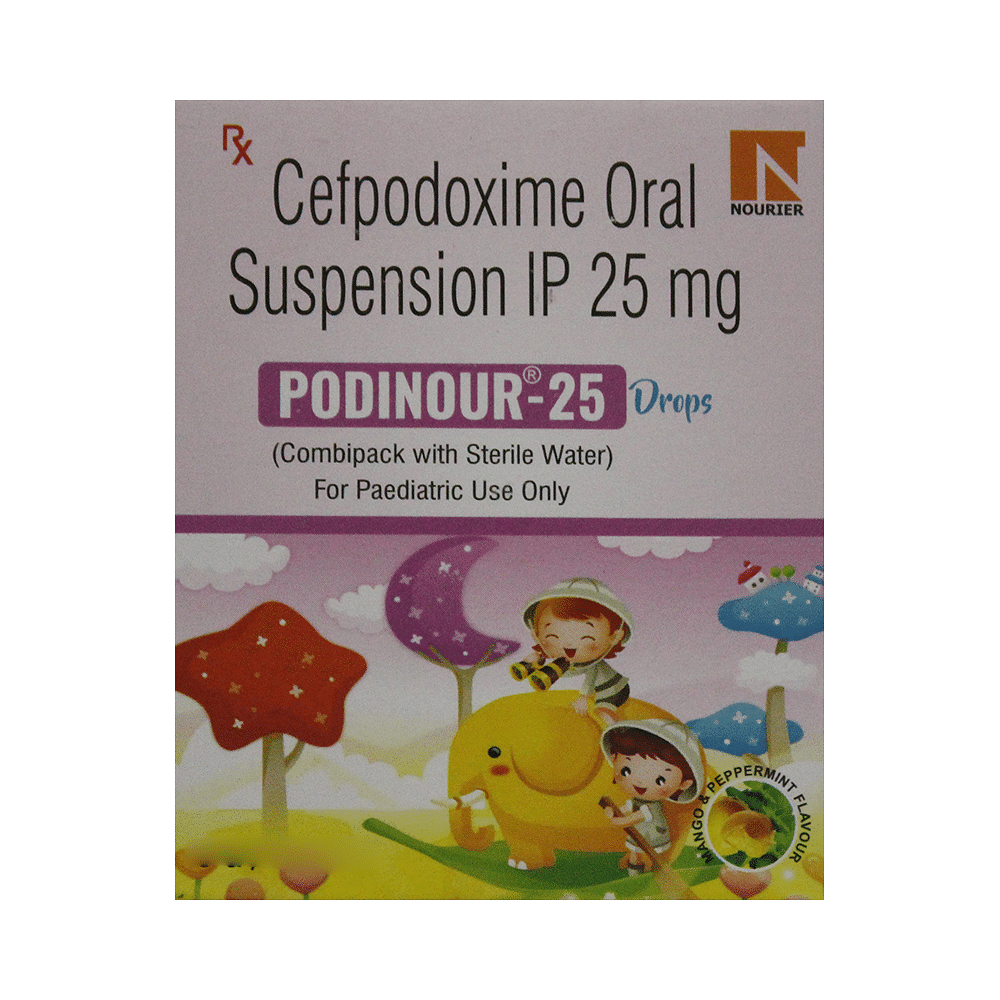
Podinour 25 Oral Drop
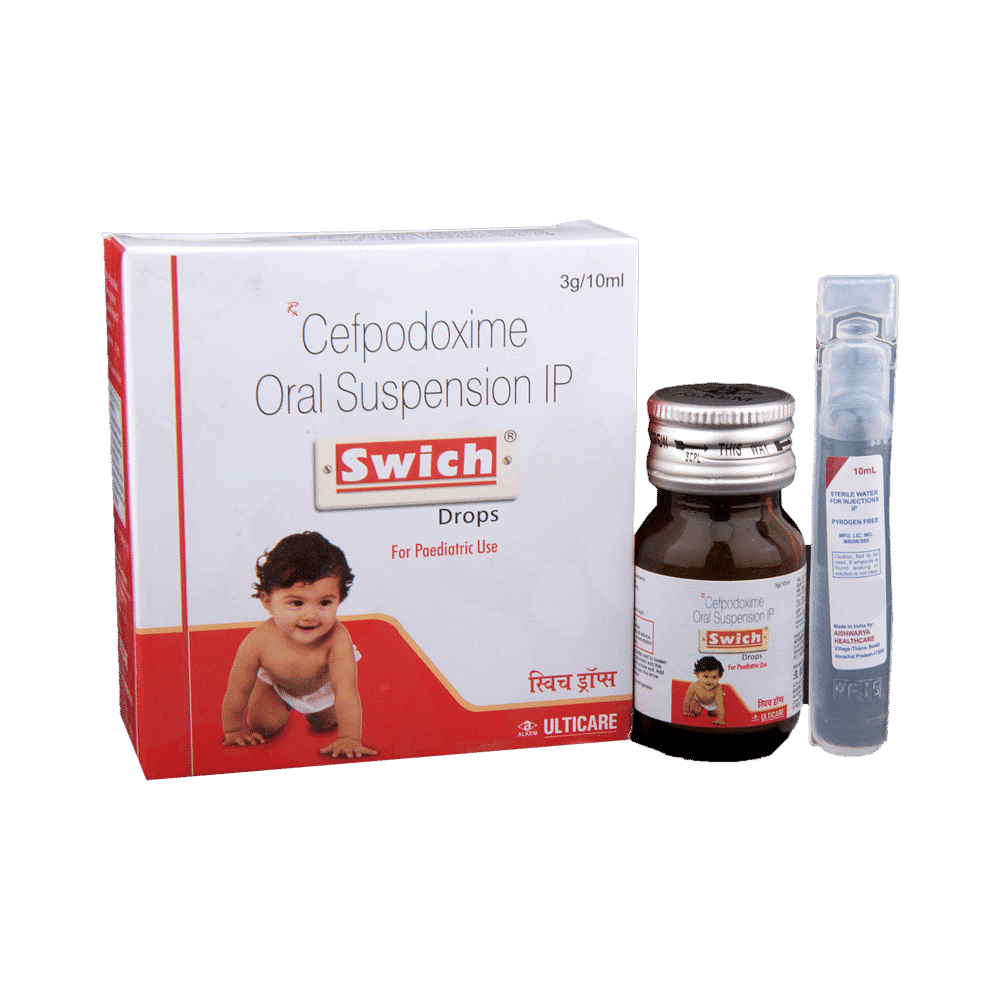
Swich Drops
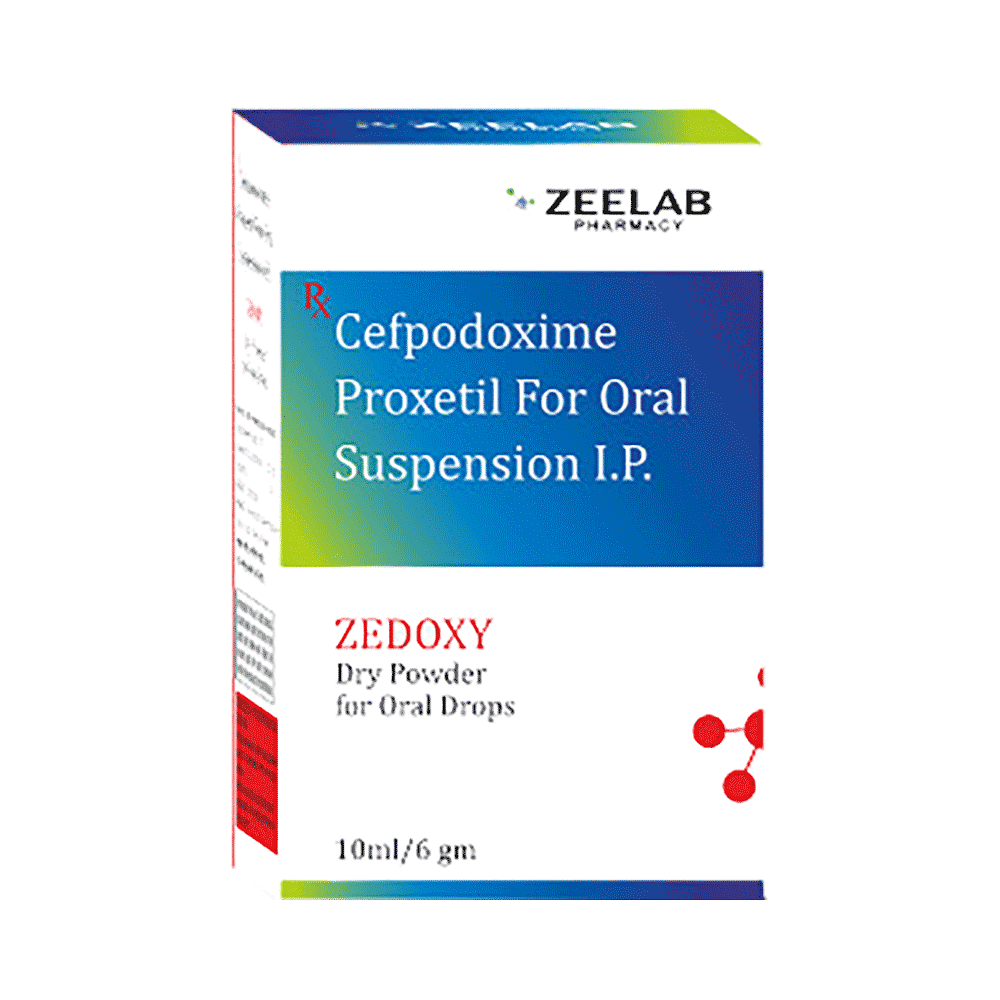
Zedoxy Oral Drop

Cpdox Oral Suspension

Pelpod Oral Drop
Frequently asked questions
What if I give too much of Mgdox Oral Drop by mistake?
An extra dose of Mgdox Oral Drop is unlikely to do harm. However, if you think you have given too much of Mgdox Oral Drop to your child, immediately speak to a doctor. Overdose may cause unwanted side effects and may even worsen your child’s condition.
Are there any possible serious side effects of Mgdox Oral Drop?
Serious side effects that require immediate medical attention include persistent vomiting, kidney damage, allergy, diarrhea, and severe gastrointestinal infections. Always consult with your child’s doctor for help in such a situation.
What other medicines should not be given along with Mgdox Oral Drop?
Avoid giving Mgdox Oral Drop along with medicines like Aminoglycosides such as amikacin, gentamicin, streptomycin, anticoagulants (blood-thinners) like warfarin, PPIs like Pentaprozole, and H2 blockers like Famotidine. Before you start giving Mgdox Oral Drop to your child, let your child’s doctor know if your child is taking any of the above-mentioned medicines.
Can I vaccinate my child while he is taking Mgdox Oral Drop?
It is advised to inform the doctor if your child is taking Mgdox Oral Drop at the time of vaccinations like BCG, cholera, and typhoid as Mgdox Oral Drop can neutralize the effect of these vaccines.
Which lab tests may my child undergo while taking Mgdox Oral Drop on a long-term basis?
The doctor may prescribe getting kidney function tests and liver function tests periodically to keep a check on your child’s condition. This is not a standard practice, consult your child's doctor for more information.
The mucus coming out of my child’s nose is yellow-green. Is it a sign of a bacterial infection?
Yellow or green mucus in the nose does not mean that antibiotics are needed. During a common cold, it is normal for mucus to thicken up and change from clear to yellow or green. Symptoms often last for 7-10 days.
My child is having a sore throat and ear infection. Can I give antibiotics?
No. More than 80% of sore throats and ear infections are caused by a virus, and antibiotics are not given for viral infections. If your child has a sore throat, runny nose, a barky cough, pain, and discharge from the ear, it is most likely because of a virus. Consult your child’s doctor to seek guidance.
Does a common cold caused by viruses always result in a secondary bacterial infection? When to start an antibiotic to prevent infection?
In most cases, bacterial infections do not follow viral infections. Using antibiotics to treat viral infections may instead lead to side effects without benefiting your child’s health. Use antibiotics only after consulting with your child's doctor.
Can Mgdox Oral Drop impact my child’s digestive system?
Children often have a sensitive stomach and develop a stomach upset while taking antibiotics. When antibiotics are given, the good bacteria in their gastrointestinal tract may take a hit too. Mgdox Oral Drop may kill off the good bacteria along with the bad, increasing the risk of developing other infections. If your child is having diarrhea while on Mgdox Oral Drop, do not stop the medicine course. Instead, call your child’s doctor to ask about the next steps. In some cases, the doctor may alter the dose.
Can Mgdox Oral Drop lead to bacterial resistance in my child?
Yes, irregular treatment, repeated use, and misuse of Mgdox Oral Drop can lead to resistance. Resistant bacteria are no longer killed by the antibiotics and may lead to reinfection.


